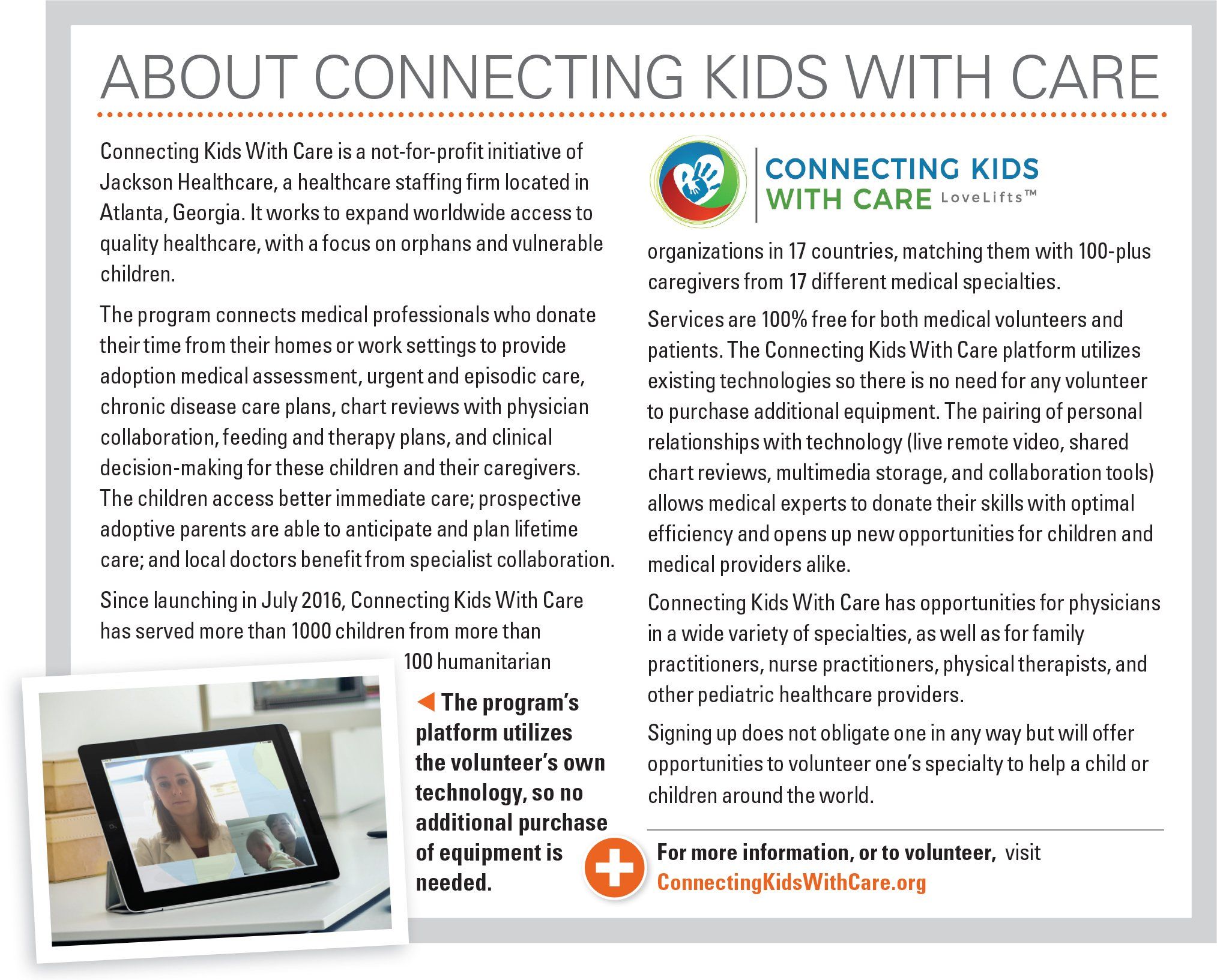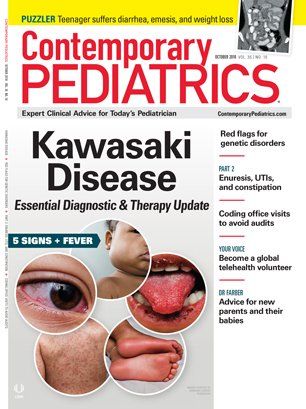How I found my calling as a volunteer
Joining a global telehealth program can profoundly change a child’s life-and yours!
About Connecting Kids With Care

Like most physicians, I have always felt like I was born to help people. I was drawn to medicine by that inherent drive plus an acquired fascination with pathophysiology and how phenotypes are affected by corrupted metabolic and physiologic processes. I am blessed to have found a career that combines my determination to help people with my interest in understanding aberrant physiologic processes and how to treat them. I am even more fortunate to have had a job as a pediatrician at a community hospital in rural Missouri waiting for me upon graduation from residency.
I love my daily pediatrics practice and the team I work with. The unique long-term relationships I have formed with families, some beginning in the delivery room, has been more rewarding than I ever could have imagined. What I miss most about not being at an academic center, however, is the camaraderie of morning report, the collaboration inherent within a multidisciplinary team, and the deep communal dives into diagnosing and treating less-common conditions. Whereas relationship development and community outreach have been very rewarding, complex cases have been hard to find and the resources to care for them locally scarce.
Embracing volunteerism
Combining my need to help solve medically complex cases with my commitment to ensuring rural pediatric patients receive quality and timely care, I have found great satisfaction in volunteering for Connecting Kids With Care (www.connectingkidswithcare.com), a volunteer telehealth program that pairs US physicians with preadoptive children on the other side of the world.
Connecting Kids With Care, a nonprofit outreach of Jackson Healthcare (Atlanta Georgia), has a network of relationships with orphanages around the globe. When US parents are considering adopting a medically fragile child from one of these orphanages, the staff refers the child’s medical files to a volunteer physician like me. Working with an online file that generally includes 8 to 15 pages of information, including photos, scans, sometimes videos, and a primary diagnosis, I review the child’s status and consider secondary diagnoses, prognosis, and treatment options.
It is an outstanding opportunity for me and for many physicians because it provides an additional intellectual challenge that may be missing from our daily practice. It allows me to profoundly-and positively-change a child’s life for the better. It fits into my life at a time when it’s convenient for me, taking as little as half an hour but sometimes as long as several hours of my discretionary time. Best of all, it doesn’t matter if I’m in Missouri or visiting family in New York. The opportunity to help is the same thanks to technology.
By reviewing each child’s file, I practice my skills in pattern recognition, solving puzzling cases, and interpreting complex medical records for parents considering adoption. I’ve helped with cases of complicated congenital heart conditions, exstrophy of the bladder, glaucoma and cataracts, rare infectious diseases, and much more.
Although the information I receive is sometimes incomplete or unclear, I see it as my role to make sense of the data and communicate it in an organized fashion for a family or future primary care provider. If the child has glaucoma, to what stage has it progressed? Will the child require surgery? How many specialists may the child require? Is medication necessary? What level of independence may be expected? Will he or she need a family’s care for the rest of his/her life?
Families that adopt a medically fragile child internationally are amazing people with an enormous capacity to love, but they deserve a frank evaluation of the challenges that lay before them. I don’t want parents to enter an adoption without the emotional and social resources they need, or without understanding the level of care that their child may require. Furthermore, I hope that my analysis gives the child’s physician a global view of the child’s health, along with suggestions for specialist involvement.
I enjoy pediatrics because children are innocent. Their medical problems are no fault of their own. Helping children locally through my practice and internationally through volunteering with Connecting Kids With Care is a way for me to continue to accomplish what I went into pediatrics to do-advocate for children and their families.
